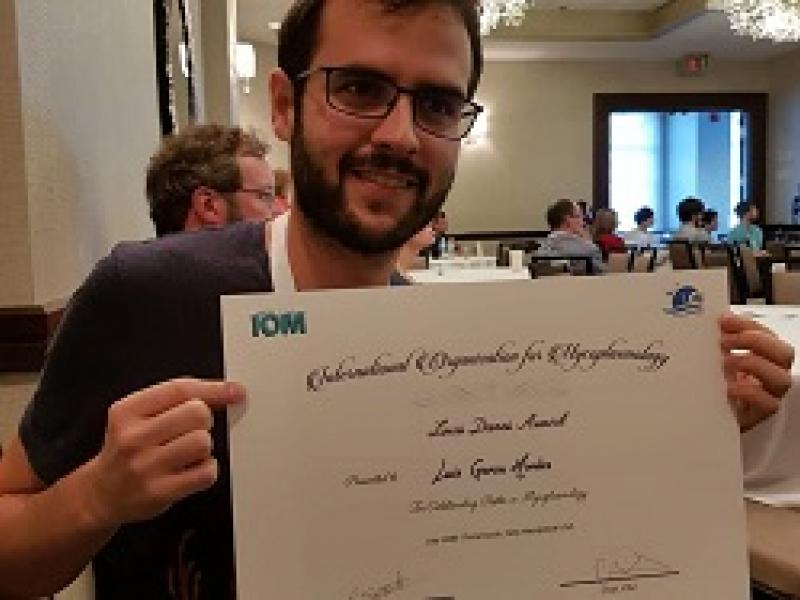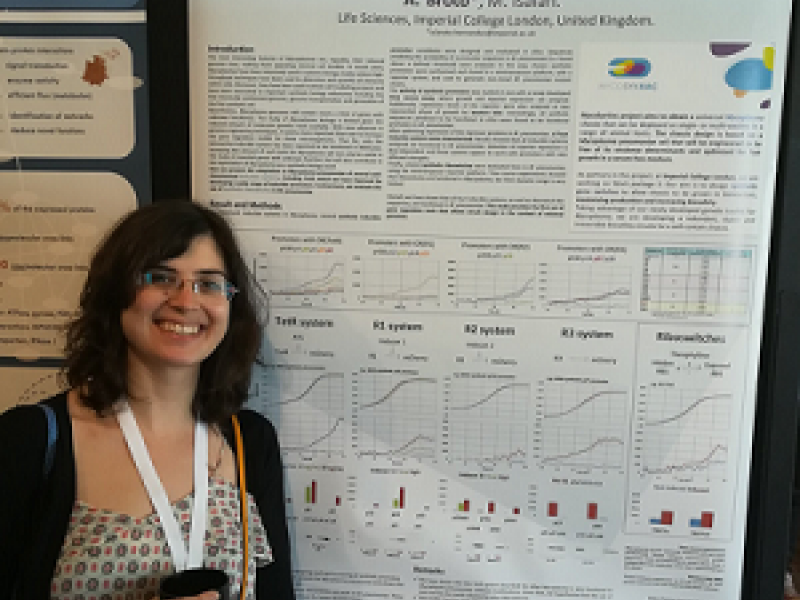The 22nd Congress of the International Organization for Mycoplasmology (IOM) took place in Portsmouth, New Hampshire, US from 9 -12 July 2018.
The International Organization for Mycoplasmology is devoted to the study of mycoplasmas, ureaplasmas, spiroplasmas, and phytoplasmas. The Congress was a chance to discover the latest research advances in clinical mycoplasmology, veterinary mycoplasmology, synthetic biology, pathogenesis, and vaccine development.
Posters and awards
The three-day event, which included keynote speakers, award lectures and poster sessions, saw active participation by MycoSynVac partners. There was some good news for Luis Garcia Morales from the Institut National de la Recherche Agronomique (INRA), who received the Louis Dienes Award for his poster.
The poster, also by Carole Lartigue and Alain Blanchard from INRA entitled “Engineering mycoplasma pneumoniae cells for the production of saturated fatty acids” presented work done as part of the MycoSynVac project. The project aim is to design a universal Mycoplasma pneumoniae-derived chassis vaccine to deploy in animal hosts, which can grow in a serum-free medium without the addition of any source of saturated fatty acids. The results presented here demonstrated that the introduction of a fatty acid biosynthesis pathway into Mycoplasma pneumoniae allowed the mycoplasma to grow in the absence of external sources of saturated fatty acids.
Other posters related to the MycoSynVac project included work done at Imperial College London by Alicia Broto who presented a poster entitled “A gene regulation toolkit for Mycoplasma” describing the first set of gene regulation tools that allow circuit design in the context of minimal genomes.
Team members from project partner INRA, Estelle Ruiz, Yonathan Arfi, Carole Lartigue and Pascal Sirand-Pugnet, presented “CReasPy-cloning: simultaneous cloning and engineering of megabase-sized genomes into yeast using the crispr-cas9 system” a new approach, based on the CRISPR-Cas9 system, to simultaneously clone and edit a Mycoplasma genome in yeast.
Daniel Shaw, from project partner institute the Centre for Genomic Regulation (CRG), also presented some ongoing work to develop a new method to study changes in essentiality in the M pneumoniae under different conditions.
Another highlight from the congress was a talk given by Jörg Stülke from the University of Göttingen, in collaboration with the CRG, about the interactome of M. pneumoniae (the data is now open to the scientific community through an Open access database: http://mycowiki.uni-goettingen.de). Much interest was also generated by John Glass from the J Craig Venter Institute, presenting work already underway to identify all the functions needed for a minimal cell such as JCVI-syn3A. There was a call for international efforts to identify the function of genes that are included, but with a yet an unknown role.
More information


